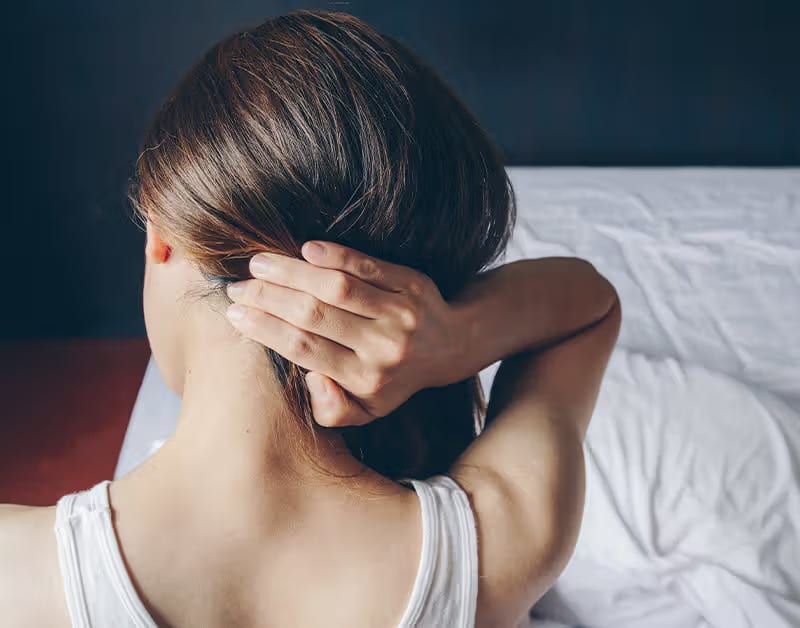Ever had that glorious “eight hours of sleep” moment, only to wake up feeling like you lost a fight with your pillow? You went to bed early, expecting to wake up fresh, but instead, your neck is stiff, sore, and silently judging your life choices. If this sounds familiar, you’re not alone. Millions of people—especially women over 40—deal with neck pain after sleeping, even when they get plenty of rest.
Let’s talk about why it happens, how to prevent it, and when it’s time to call in the pros.
1. The Pillow Problem
Your pillow isn’t just for comfort—it’s your neck’s main support system. The wrong pillow height or firmness can force your neck into awkward angles for hours. Experts say the ideal pillow keeps your neck parallel to the mattress, not bent up or down.
Quick Tip: Try a memory foam or cervical contour pillow for better alignment.
2. Sleeping Position Matters
Side and back sleeping are your neck’s best friends. Stomach sleeping, on the other hand, twists your neck and arches your back—basically, a recipe for waking up sore.
Quick Tip: If you can’t quit sleeping on your stomach, use a body pillow to help train yourself onto your side.
3. Age-Related Changes
As we age, the disks and joints in our neck naturally wear down. By age 60, most people have some form of cervical arthritis. That “creaky” feeling in the morning? Often just part of normal aging—but it can be managed with good sleep support.
4. Posture During the Day
If you spend the day hunched over your phone or computer, your neck muscles stay tense even while you sleep. This tension can leave you feeling stiff in the morning.
Quick Tip: Keep screens at eye level and stretch your neck gently before bed.
5. How to Prevent Morning Neck Pain
- Choose a supportive pillow that keeps your neck aligned
- Use a medium-firm mattress for proper spinal support
- Sleep on your side or back
- Stretch gently before bed to relax tight muscles
- Keep your sleep environment calm, dark, and cool
6. When to See a Doctor
If your neck pain lasts more than a week, gets worse, or is accompanied by numbness, weakness, or shooting pain, see a specialist. Start with your primary care doctor, or visit an orthopedist, physical therapist, or chiropractor. Persistent pain can often be relieved with posture correction, therapy, or targeted treatments.
Final Thoughts:
Neck pain after sleeping isn’t always about how long you sleep—it’s about how you sleep. A few changes to your pillow, position, and posture can make all the difference. And if the pain doesn’t go away, don’t ignore it—getting professional help early can prevent bigger problems later.
